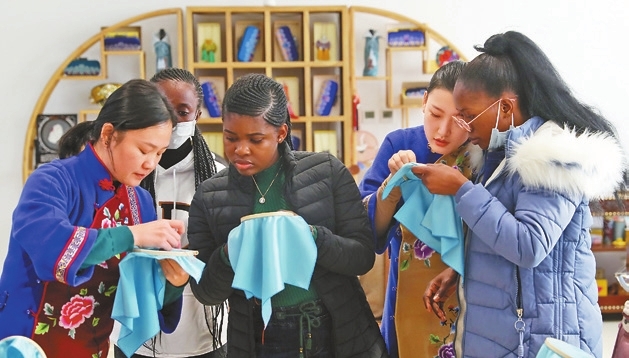
JIANG PEILAN teaches visitors how to make traditional Chinese calligraphy brushes at a popular tourist attraction in South China’s Guangxi Zhuang Autonomous Region. Jiang, in her 50s, is an expert in making the Guilin-style brushes by hand, a technique listed as a regional-level intangible cultural heritage. Her courses are held in a cultural heritage experience center at a major tourist draw in Guilin that features several scenic rivers and lakes. Jiang regards her courses, where visitors learn to make their own writing brushes under her guidance, as a good way to preserve and promote a fading art that is becoming less appealing among young people in the digital age. “Thanks to the large number of visitors to the tourist spot, we are showcasing the art to a bigger audience,” she said. Jiang began teaching brush-making at the experience center last year at the invitation of a local cultural company that runs the facility. She sometimes gives more than five lectures on weekends or holidays to meet the growing demand from tourists. “The center provides the general public access to cultural heritage that is deemed by many as highbrow or out of reach,” said Pan Yannan, general manager of the company. Experience centers focusing on intangible cultural heritage have mushroomed across China to tap into the Chinese people’s growing interest in traditional culture. In Guangxi alone, a total of 368 such centers have been established since 2009, according to Xu Xiaoming, director of the regional intangible cultural heritage protection center. Experts believe the exploding popularity of such experience centers is part of a larger trend that has seen a growing focus on tradition, as the increasingly affluent and modernized Chinese society seeks to reconnect with its cultural roots. (Xinhua) | 
